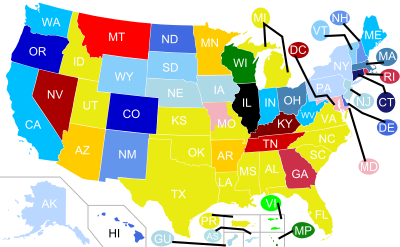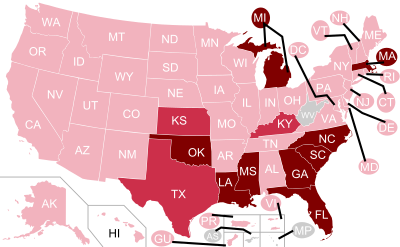

The United States has inherited sodomy laws which constitutionally outlawed a variety of sexual acts that are deemed to be illegal, illicit, unlawful, unnatural and/or immoral from the colonial-era based laws in the 17th century.[1] While they often targeted sexual acts between persons of the same sex, many sodomy-related statutes employed definitions broad enough to outlaw certain sexual acts between persons of different sexes, in some cases even including acts between married persons.
Through the mid to late 20th century, the gradual decriminalization of American sexuality law led to the elimination of anti-sodomy laws in most U.S. states. During this time, the Supreme Court upheld the constitutionality of its sodomy laws in Bowers v. Hardwick in 1986. However, in 2003, the Supreme Court came to a new opinion and reversed the decision with Lawrence v. Texas, invalidating all sodomy laws in the remaining 14 states: Alabama, Florida, Idaho, Kansas, Louisiana, Michigan, Mississippi, Missouri, North Carolina, Oklahoma, South Carolina, Texas, Utah and Virginia.
- ^ Eskridge, William N. (2009). Gaylaw: Challenging the Apartheid of the Closet. Harvard University Press. p. 161. ISBN 9780674036581.
